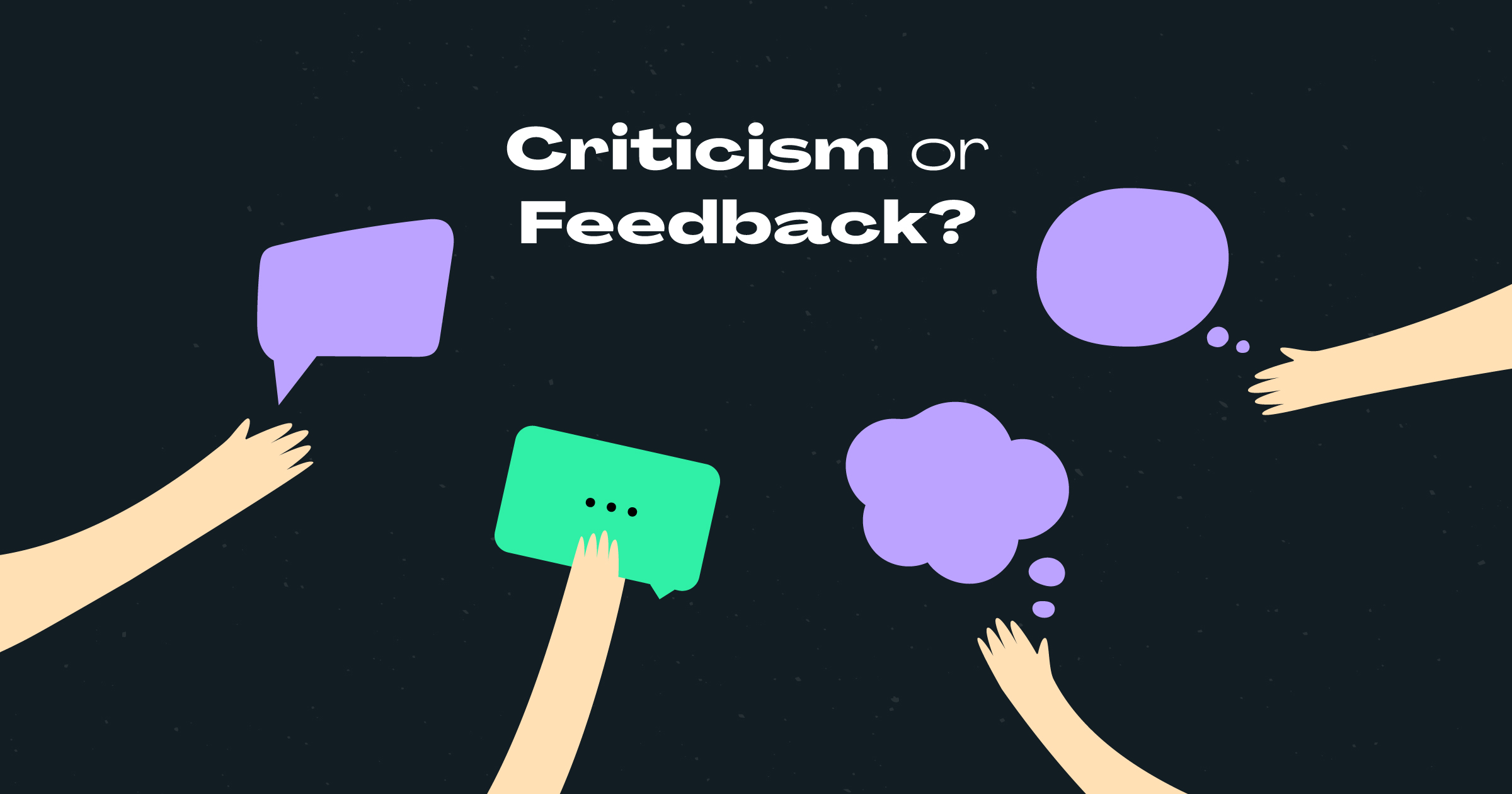Criticism or Feedback?

Believe it or not, humans couldn’t afford to live without feedback. The need for assurance in everything that we do goes back in time. From our childhood age, we needed affirmation in every step we took and every new thing we learned. We even acquired our language through reinforcement and imitation. Just try and make an angry face at a baby and you will see how he/she won’t smile at you. A second after, make a smiley face and see his/her face change immediately. Make a specific action when a child says a word and you will see how that will be inculcated in their head. It is the power of a reinforcement need that makes a major impact on how we can create relations with others.
We need feedback in order to grow as humans and professionals. Feedback has the power to strengthen trust and respect between people, hence contributing directly to our psychological needs of love & belonging, and esteem.
Getting feedback on both a personal and professional level is critical to an individual’s development and advancement. However, if the feedback is done incorrectly, it may sound like criticism. There is a feeling about criticism that can be perceived negatively by most people. In working environments criticism sounds like one-way thoughts after something has happened. Feedback, on the other hand, opens a door for a deeper understanding of the problem and leaves space for improvement and growth.
How does feedback differ from criticism?
Focus
Feedback is frequently used to convey observations regarding how the work was completed. The receiver is made aware of the expectations for their task. This could contain suggestions for how to enhance future performance.
Criticism is frequently aimed toward the individual who completed the work. If the work produces a beneficial result, the person is praised. If the outcome is less than ideal, it is common to assign blame. Since the focus of criticism is not on the issues that caused the non-completion of work, it is hard to leave room for improvement.
Objectivity
Feedback is both impartial and sincere. It evaluates the result of an action. If the outcome is negative, possible causes are investigated without assigning blame to individuals. The unspoken emphasis is that the individual must examine and resolve the situation.
Criticism is personal. A boss is likely to share personal views on the cause of the bad result and insist that the team member take corrective action. Even if the manager’s judgment is correct, criticism has the effect of making the person hearing it defensive and irritable.
Purpose Specification
Feedback is defined by its clarity of intent. The project’s goal, the person’s role in achieving it, and how one’s actions will affect the team and the outcome should all be expressed clearly.
Attitude
Feedback is given with the intention of assisting in the resolution of an issue. As a result, collaboration and goodwill may improve.
Criticism can appear to be judgmental. As a result of being inspected, the recipient may grow uneasy. Self-consciousness and a desire to disconnect from the topic and the person who is criticizing you may be prompted.
Outcome
Feedback allows for discussion and the exchange of ideas. A deeper examination of the problem may lead to a team member’s self-evaluation and self-correction.
Criticism can lead to defensiveness, which can lead to missed opportunities for learning and self-correction. Emotions may become more intense. Arguments and a breakdown of trust between the criticizer and the critic are possible outcomes. Relationships, both personal and professional, are likely to suffer.
Constructive feedback examples
Instead of: “I think you could improve your public speaking.”
Try this: “Well done for speaking in front of everyone, I know it can be daunting. For next time, try to look up a little more instead of looking down at your script. I have a book you can read to help you feel more confident to do this.”
Instead of: “Your work isn’t written in line with our company voice.”
Try this: “I really like how you’ve approached this piece of work. I have identified a couple of instances where your writing doesn’t match the company voice, so please can you revisit these again.”
Instead of: “Can you make your work a bit clearer and consistent?”
Try this: “Your spreadsheet is very useful and evaluative. However, the last two columns are not as clear as the rest of your columns. Please can you make them consistent with the rest?”
Instead of: “I’ll discuss this piece of work with you in your next monthly one-to-one.”
Try this: “I’d like to discuss this piece of work with you. Please can you let me know a time in the next few days when you’re free to discuss it?”
Instead of: “I’ll email you feedback on your task.”
Try this: “I’d like to give you some feedback on your completed task. Please can you let me know a time in the next few days when you’re free to discuss it?”
Note: Feedback is extremely beneficial, so embrace both positive and negative feedback to create a more successful work environment.